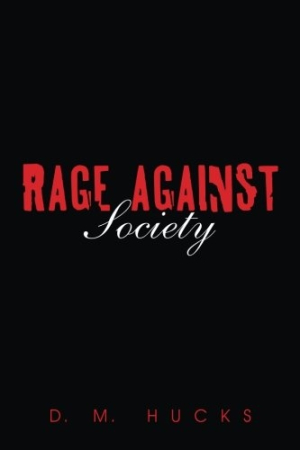Rage Against Society
This is an exciting, dark dystopian novel with a forceful social message.
Rage Against Society by D. M. Hucks takes place in the not-so-distant future in a dystopian version of the United States. With its teenage main character and its strong political themes and commentary, this is a coming-of-age story set against the backdrop of societal evolution.
The president has been assassinated, and there’s a new political order. The United States—now called the “FreeStates”—is on the brink of a civil war. The gap between the extremely rich and the poor has increased exponentially, eliminating the middle class.
Distracted by celebrity culture and manipulated by the media, the nation watches as its children are put into “rehabilitation” camps to learn fundamental life skills and to help acclimatize them to the new situation of the FreeStates. Travis King, a boy from an abusive home, escapes from one such camp with his friends, but it seems their struggle is only just beginning. Travis may possess the unique ability to end the war and restore peace to the FreeStates.
The meat of the story focuses on Travis—exploring his beginnings, the challenges he has overcome, and the friendships he has built—rather than centering on the future state. When the focus does shift to the backdrop of the novel’s events, social commentary comes through indirectly. The notion that celebrity and pop culture act as a distraction is delivered in a heavy-handed way. At times, it’s unclear if ridiculous laws and propositions, such as sending all children off to camps, are meant to be satirical or are being played completely straight.
The novel is at its best when it comes to interactions between Travis and his friends, who are written as natural, goofy, and awkward teenage boys, and who play off of each other well. However, only the main characters seem to achieve depth, with all other characters fitting too easily into “good” or “evil” classifications rather than feeling like real, fleshed-out characters.
Descriptors direct audience reactions unnecessarily—Travis’s father is “the ogre,” Travis is “the compassionate boy”—particularly since such conclusions can be reached in the context of the story. The story is slow to move forward, and while the novel does reach a fitting conclusion, the ending renders many previous scenes unnecessary.
Rage Against Society by D. M. Hucks is a book that paints a picture of an exciting, dark dystopia and has a forceful social message.
Reviewed by
Sonya Lovy
Disclosure: This article is not an endorsement, but a review. The publisher of this book provided free copies of the book and paid a small fee to have their book reviewed by a professional reviewer. Foreword Reviews and Clarion Reviews make no guarantee that the publisher will receive a positive review. Foreword Magazine, Inc. is disclosing this in accordance with the Federal Trade Commission’s 16 CFR, Part 255.

